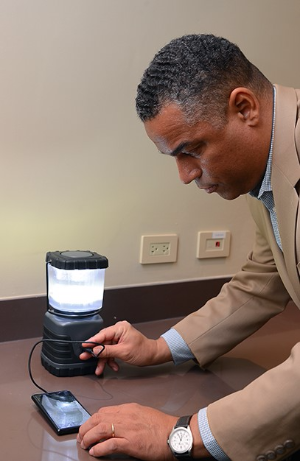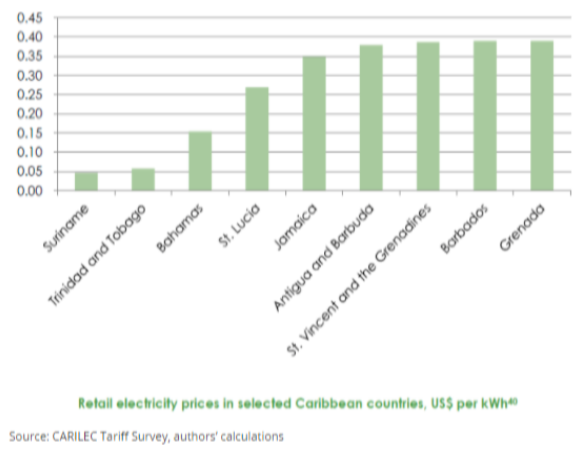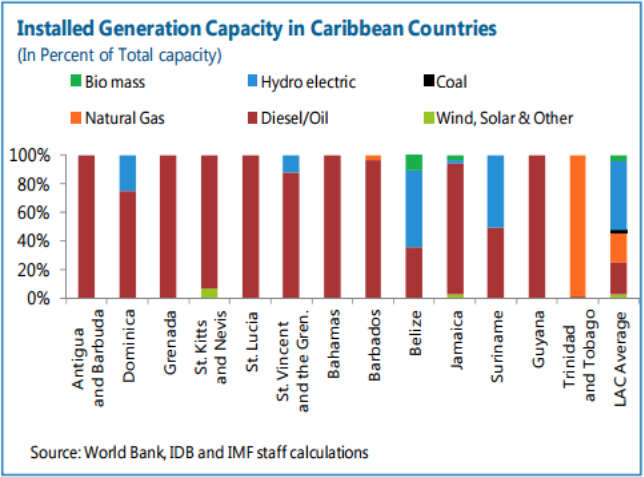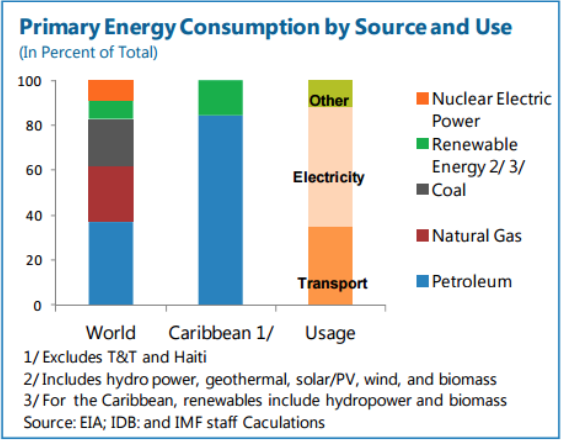- Hub & Spoke Model
- Energy Efficiency
- Renewable Energy
- Resources Use Efficiency
- Water/Waste Management
- Sustainable Agribusiness
- Innovation
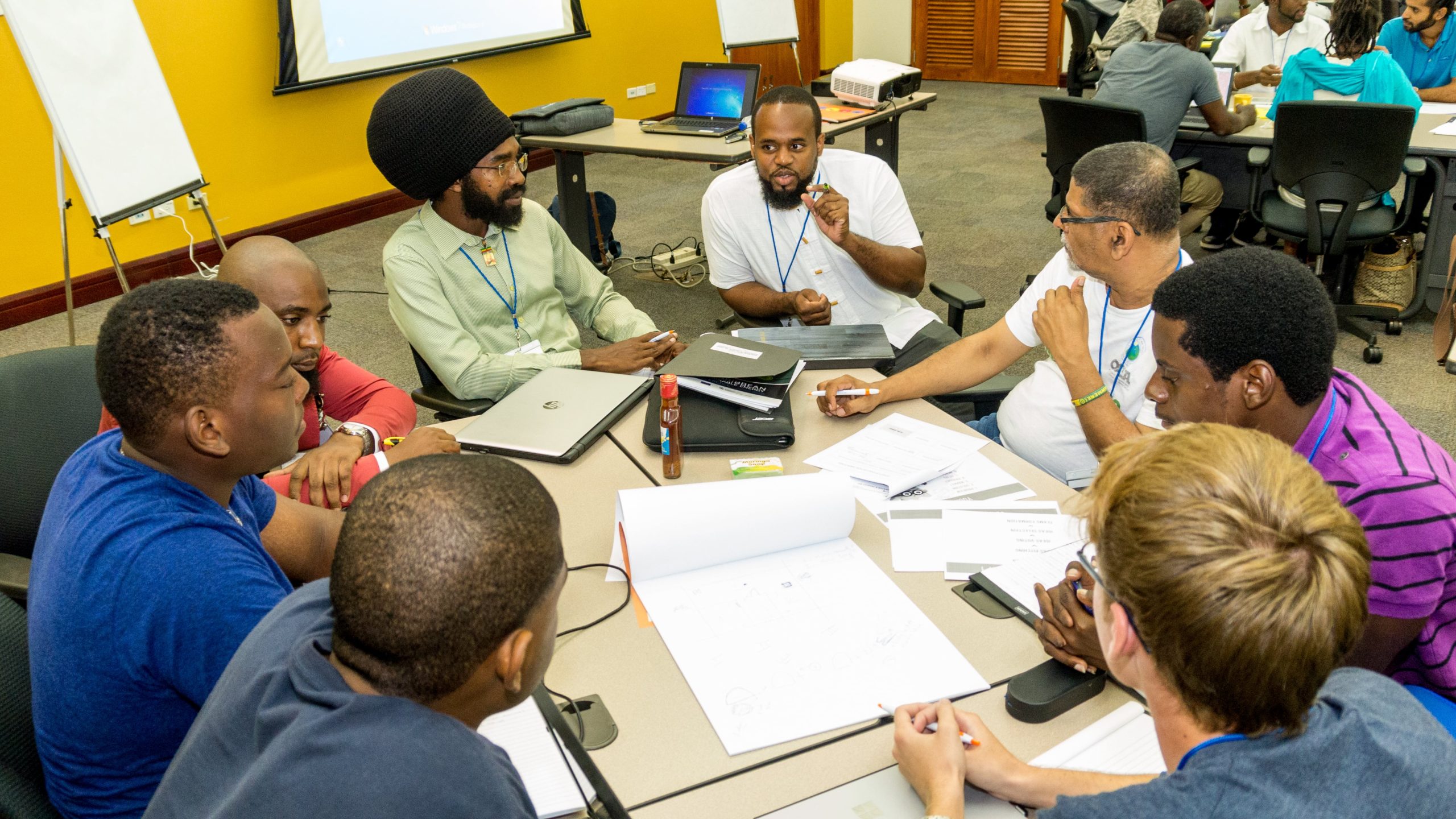
HUB & SPOKE MODEL
Our Hub & Spoke delivery model is committed to developing a culture of innovation and entrepreneurship in every nook and corner of the Region. The CCIC model has been developed to specifically address the identified gaps across five of our priority sectors. Our suite of tailored programmes provides our entrepreneurs with first world business development training, mentorship, prototype development, networking and more.

ENERGY EFFICIENCY
The Caribbean region has some of the highest energy costs in the world, ranging from US$0.20/kWh to US$0.37/kWh. Trinidad and Tobago, which produces petroleum, has a lower average cost of US$0.05/kWh. Despite the high energy costs, they remain largely untapped due to factors such as the lack of energy efficiency legislation and legal requirements for utilities to pursue efficiency. Utilities are also permitted to pass on all costs of purchasing imported fuel to customers, regardless of its efficiency.
RENEWABLE ENERGY
Opportunities in Renewable Energy
Founders must identify their target customers, develop a marketing strategy, and gain a strategic advantage over their competitors to succeed. In the Caribbean, solar PV offers an advantage due to the region's high energy costs, but unclear grid interconnection policies have hindered its adoption. However, PV module costs have significantly reduced, presenting opportunities for solar entrepreneurs to provide economically feasible, distributed, grid-connected energy. Solar cooling is also an emerging market in the region, with the first commercial installation established in 2012.
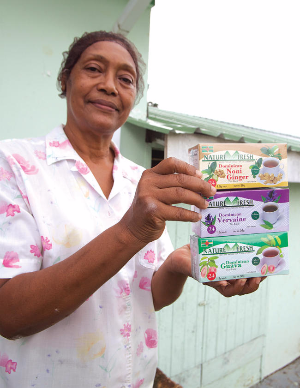
RESOURCES USE EFFICIENCY
Current levels of resource use efficiency in the region are low due to lack of awareness of end users on the impacts of resource use. Resource use efficiency initiatives receive high priority to promoting the sustainable consumption of resources through the reduction of resources utilized within a process and the reduction of waste produced by a process.
Waste-to-energy, materials recovery, reuse, and recycling.
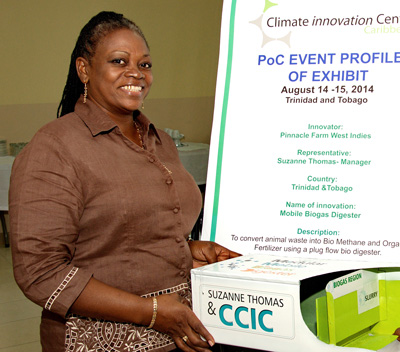
WATER/WASTE MANAGEMENT
Climate change is projected to have a largely negative impact on water resources in the Caribbean due to reduced rainfall, rising temperatures, and sea levels. This will increase demand for innovative water management solutions to meet the needs of households, commercial, industrial, and agricultural sectors. There is an opportunity to develop integrated systems for rainwater harvesting, efficiency, and reuse/recycling to maximize water utilization in households. Desalination is becoming more popular, but its high economic, environmental, and energy costs need to be addressed. Renewable energy, such as solar photovoltaics, can be used to power desalination plants. There are also opportunities for innovation in providing potable water and developing irrigation systems that optimize the use of ground, surface, and rainfall resources while incorporating recycling and reuse.

SUSTAINABLE AGRIBUSINESS
Agriculture is a critical sector in the Caribbean region despite its decreasing contribution to national economies over the years. Food insecurity has become a significant concern, particularly in countries heavily reliant on imported food. Urgent action is necessary to transform the region's approach to agriculture by prioritizing sustainability, innovation, and entrepreneurship. There is considerable potential to develop a competitive agribusiness industry by adopting technology and marketing innovations, introducing new climate-resilient crops and seeds, energy-efficient equipment, and irrigation systems, among other things, to increase efficiency and sustainability.
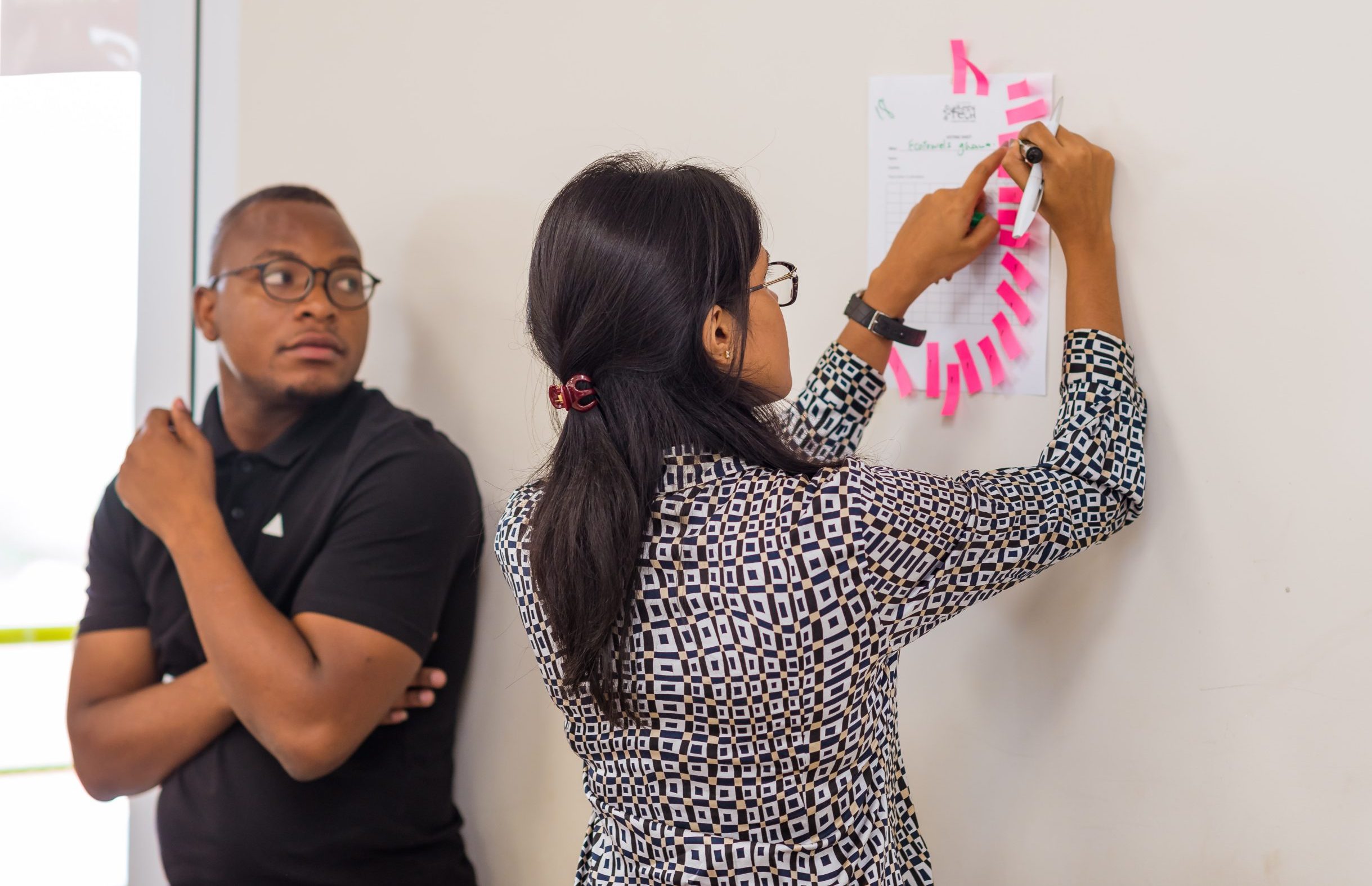
INNOVATION
Innovation is a vital process for our entrepreneurs. We like to think of innovation as the way an entrepreneur can either create new wealth-producing resources or endows existing resources with enhanced potential for creating wealth. In more specific terms, it categorizes strategies for growth and improvement in a business through Incremental, Architectural, Disruptive, or Radical evolutions. Innovation has been the key driver behind our support to entrepreneurs across the Caribbean because it creates the way forward for generations to come.

HUB & SPOKE MODEL
Our Hub & Spoke delivery model is committed to developing a culture of innovation and entrepreneurship in every nook and corner of the Region. The CCIC model has been developed to specifically address the identified gaps across five of our priority sectors. Our suite of tailored programmes provides our entrepreneurs with first world business development training, mentorship, prototype development, networking and more.

ENERGY EFFICIENCY
The Caribbean region has some of the highest energy costs in the world, ranging from US$0.20/kWh to US$0.37/kWh. Trinidad and Tobago, which produces petroleum, has a lower average cost of US$0.05/kWh. Despite the high energy costs, they remain largely untapped due to factors such as the lack of energy efficiency legislation and legal requirements for utilities to pursue efficiency. Utilities are also permitted to pass on all costs of purchasing imported fuel to customers, regardless of its efficiency.

INNOVATION
Innovation is a vital process for our entrepreneurs. We like to think of innovation as the way an entrepreneur can either create new wealth-producing resources or endows existing resources with enhanced potential for creating wealth. In more specific terms, it categorizes strategies for growth and improvement in a business through Incremental, Architectural, Disruptive, or Radical evolutions. Innovation has been the key driver behind our support to entrepreneurs across the Caribbean because it creates the way forward for generations to come.
RENEWABLE ENERGY
Opportunities in Renewable Energy
Founders must identify their target customers, develop a marketing strategy, and gain a strategic advantage over their competitors to succeed. In the Caribbean, solar PV offers an advantage due to the region's high energy costs, but unclear grid interconnection policies have hindered its adoption. However, PV module costs have significantly reduced, presenting opportunities for solar entrepreneurs to provide economically feasible, distributed, grid-connected energy. Solar cooling is also an emerging market in the region, with the first commercial installation established in 2012.

RESOURCES USE EFFICIENCY
Current levels of resource use efficiency in the region are low due to lack of awareness of end users on the impacts of resource use. Resource use efficiency initiatives receive high priority to promoting the sustainable consumption of resources through the reduction of resources utilized within a process and the reduction of waste produced by a process.
Waste-to-energy, materials recovery, reuse, and recycling.

WATER/WASTE MANAGEMENT
Climate change is projected to have a largely negative impact on water resources in the Caribbean due to reduced rainfall, rising temperatures, and sea levels. This will increase demand for innovative water management solutions to meet the needs of households, commercial, industrial, and agricultural sectors. There is an opportunity to develop integrated systems for rainwater harvesting, efficiency, and reuse/recycling to maximize water utilization in households. Desalination is becoming more popular, but its high economic, environmental, and energy costs need to be addressed. Renewable energy, such as solar photovoltaics, can be used to power desalination plants. There are also opportunities for innovation in providing potable water and developing irrigation systems that optimize the use of ground, surface, and rainfall resources while incorporating recycling and reuse.


